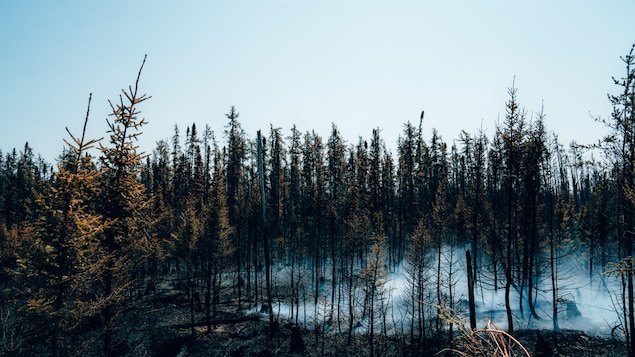A report released in May by the federal Department of Public Safety found that there are nearly 7,000 wildfires in Canada each year, most commonly in British Columbia and the boreal forest areas of Ontario, Quebec, the Prairie provinces, the Yukon and the Northwest Territories . On average, the area burned is 2.5 million hectares per year.
Since the 1970s, the area of Canada burned by wildfires has more than doubled each year, and by 2100 that number is expected to double again
the report further warns.
But how can we help forests become more resilient to fire and limit damage?
This is the case, according to Christian Messier, professor of forest ecology at the University of Quebec at Outaouais (UQO) and at the University of Quebec at Montreal (UQAM). almost impossible
Control fires when they are this intense.
I think that with climate change, we’re going to see more and more of these kinds of big disruptions, and we should adapt to intervene not only in terms of our capabilities, but also in terms of the forest.
he said in an interview with Gérald Fillion on the show economic zone.
” We should help the forest adapt to the future to reduce its vulnerability […] not only in the face of fires, but also in the face of drought, insect epidemics, and other disturbances. »
To do this, the expert recommends diversifying the planting of tree species and concentrating on deciduous trees. We know that hardwoods are far less likely to burn and even act as a buffer to reduce the risk of fire
he explains.
We should also encourage the planting of fire-adapted species, because we want the forest to come back to life after a fire.
Mr. Messier also points out that the lights represent a natural disorder
for the forest However, fires are becoming more common in areas where species are poorly adapted to this type of disturbance
.
He points out that only 10 to 20% of the wood that is burned is recovered because it is a process very expensive, which requires special treatment
. We do it when it’s really necessary, but economically it’s not the best solution
he adds.
Given the seriousness of the situation, do we need a national forest fire prevention strategy? Yes absolutely
, decides Mr. Messier. In his opinion, such a plan is essential, especially since a recent study predicts that if nothing is done within 50 years, the amount of carbon emitted by fires will be the same as the amount of carbon emitted by human activity is emitted. in Canada pose a significant risk to public health.

Award-winning entrepreneur. Baconaholic. Food advocate. Wannabe beer maven. Twitter ninja.






